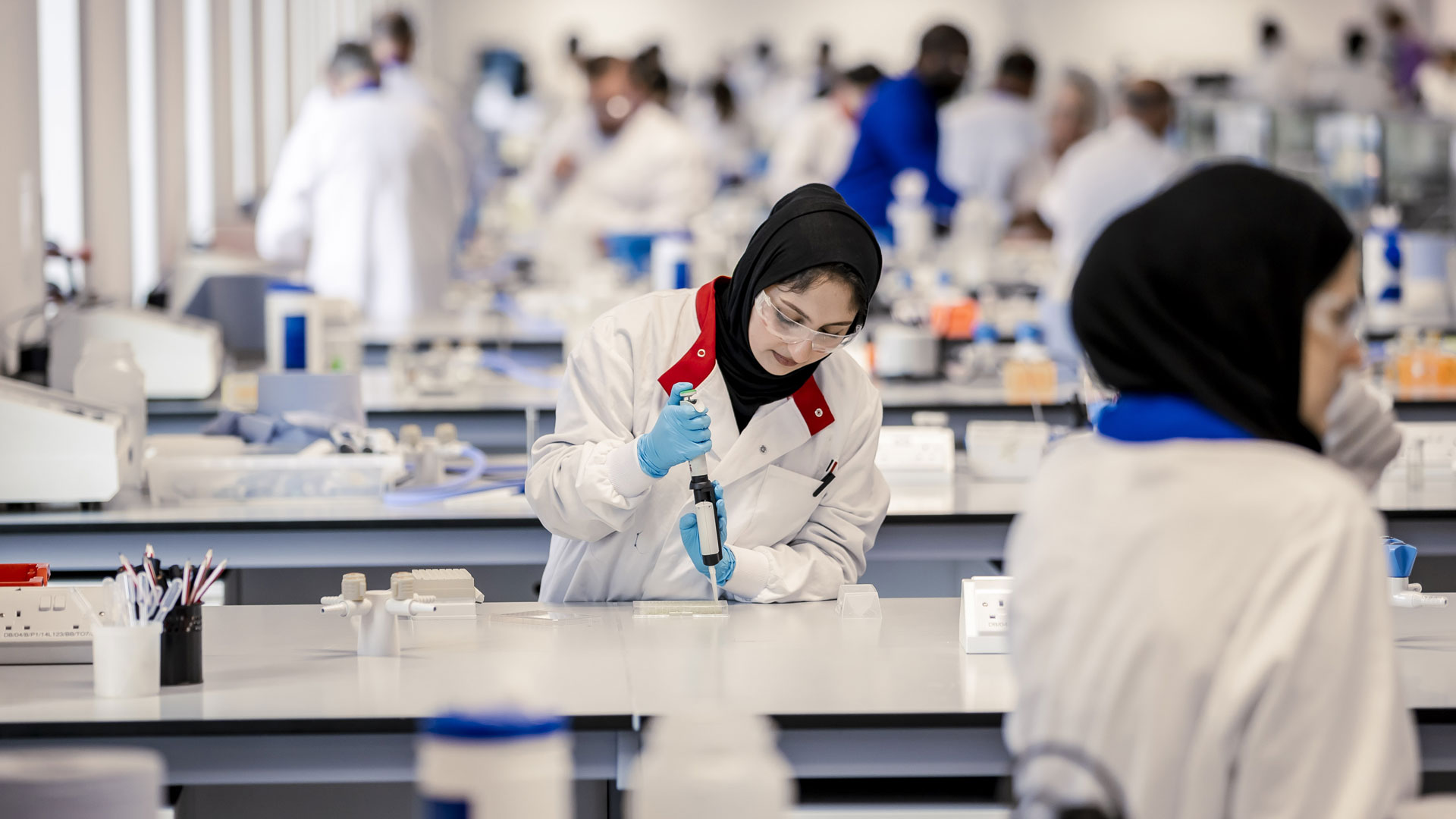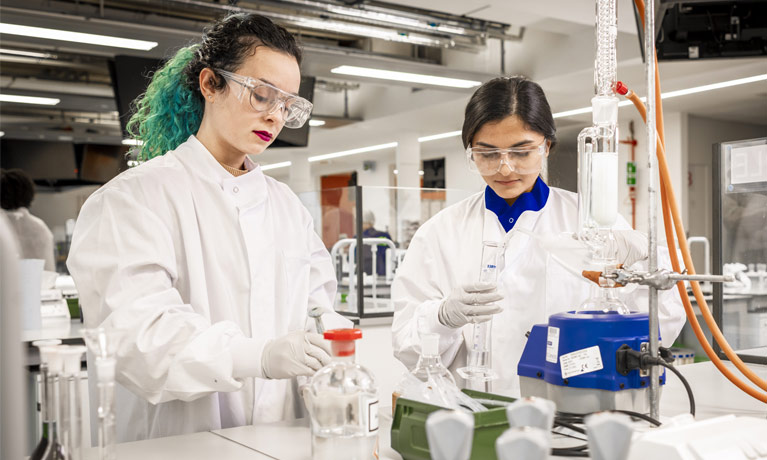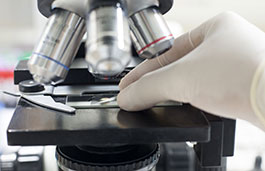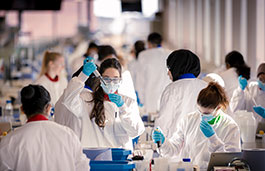Search
Global Pharmaceutical and Biotech Management MSc
Study level: Postgraduate
This course combines multiple disciplines to explore how to apply pharmaceutical and biotech management principles to the challenges and complexities faced in both national and global markets.
Year of entry
Location
Coventry University (Coventry)
Study mode
Full-time
Duration
1 year full-time
Course code
HLST299
Start date
May 2025
Course overview
The global healthcare sector needs new pharmacological therapies, including medical devices and drugs, to be developed and marketed worldwide. This requires suitably trained graduates who can apply business management skills within the disease treatment and prevention sector to increase sales, market growth and revenue for pharmaceutical and biotech companies in highly competitive global markets.
- Examine the pharmaceutical and biotech sectors and current theories in effective leadership and management.
- Explore the implementation of positive and profitable change within organisations and their external environment.
- Enhance your understanding of product design, development, evaluation and commercialisation.
- Develop a business project to solve a pharmaceutical or biotech problem.
- Design a personal action plan to help you continue to develop as a future changemaker and leader within industry.
5 QS Stars for Teaching and Facilities
QS Stars University RatingsRanked 11th Modern University in UK by the Times
The Times and Sunday Times Good University Guide 2025Ranked 8th for Overall Satisfaction in PTES
Postgraduate Taught Experience Survey (PTES) 2024Why you should study this course
- This course has been carefully designed to teach you the skills and knowledge you need to succeed in your field of study, as well as the broader skills that employers expect, both nationally and internationally. This will help you develop as a strong leader with management capabilities.
- An integral part of the course is a professional development module which is currently accredited by the Chartered Management Institute (CMI)1. Upon successful completion of the module, you will gain the CMI Level 7 Certificate in Strategic Management and Leadership Practice at no additional cost.
- We aim for our graduates to be globally aware critical thinkers. We also want them to have the analytical, evaluation and problem-solving skills to effectively communicate and manage multinational teams in the pharmaceutical and biotech industries.
- Our multi-million-pound Alison Gingell Building features a suite of analytical and biological laboratories.
Accreditation and professional recognition
This course is accredited1 and recognised by the following bodies:

Chartered Management Institute
The course includes the Leading Strategic Change through Creativity and Innovation module1. This module is accredited by the Chartered Management Institute (CMI). Students who successfully complete the module and meet the CMI learning outcomes Professional Development module will gain a Level 7 Certificate in Strategic Management and Leadership Practice. Further details can be found on the Professional Development module Professional Development module homepage.
What you'll study
How you'll learn
Our teaching and learning aims are to be active, applied, social and inclusive, relevant to real-world scenarios and to take a global approach to discussing challenges and potential solutions within the wider pharmaceutical and biotech fields. Most modules will be taught using a combination of lectures, interactive workshops and seminars. The lecture components will be used where they give the greatest benefit to students while workshops and seminars allow you to work in smaller groups on problem-solving tasks.
The course is structured in such a way that students can take a part-time or full-time pathway, and can also opt to undertake a PGCert, PGDip, and/or MSc.
Teaching contact hours
The number of full-time contact hours may vary from semester to semester, however, on average, it is likely to be around 12 contact hours per week (if full-time). Additionally, you will be expected to undertake significant self-directed study of approximately 30 hours each week, depending on the demands of individual modules (for full-time there is 600 hours total study time per 13-week semester, 3 semesters per 12 months).
The contact hours may be made up of a combination of face-to-face teaching, individual and group tutorials, and online classes and tutorials.
As an innovative and enterprising institution, the university may seek to utilise emerging technologies within the student experience. For all courses (whether on-campus, blended, or distance learning), the university may deliver certain contact hours and assessments via online technologies and methods.
Since COVID-19, we have delivered our courses in a variety of forms, in line with public authority guidance, decisions, or orders and we will continue to adapt our delivery as appropriate. Whether on campus or online, our key priority is staff and student safety.
Assessment
This course will be assessed using a variety of methods which will vary depending upon the module.
Assessment methods include:
- Online tests
- Coursework
- Presentations
- Reports
- Portfolios
- Projects
- Group work
- Individual assignments
The Coventry University Group assessment strategy ensures that our courses are fairly assessed and allows us to monitor student progression towards achieving the intended learning outcomes.
The pharmaceutical and biotech industries are part of a globally relevant and pioneering area for which there is an ever-growing need for candidates suitable for employment. These areas include not only the development of new products, in response to global medical issues, but also in the increasingly vital application of a business management and marketing mindset. Within our Global Pharmaceutical and Biotech Management MSc we endeavour to provide a transformative multi-discipline suite of courses encompassing the application of the knowledge of leadership and business management within pharmaceutical and biotech sectors, in both national and international markets.
Steven Foster, Associate Head of School for Quality and Accreditation, School of Life Sciences, 2023

Entry requirements
Fees and funding
2024/25 tuition fees.
| Student | Full-time | Part-time |
|---|---|---|
| UK, Ireland*, Channel Islands or Isle of Man | £11,200 | Not available |
| EU | £11,200 per year with EU Support Bursary** £18,600 per year without EU Support Bursary** |
Not available |
| International | £18,600 | Not available |
For advice and guidance on tuition fees3 and student loans visit our Postgraduate Finance page.
We offer a range of International scholarships to students all over the world. For more information, visit our International Scholarships page.
Tuition fees cover the cost of your teaching, assessments, facilities and support services. There may be additional costs not covered by this fee such as accommodation and living costs, recommended reading books, stationery, printing and re-assessments should you need them.
The following are additional costs not included in the tuition fees:
- Any optional overseas field trips or visits: £400+ per trip.
- Any costs associated with securing, attending or completing a placement (whether in the UK or abroad).
*Irish student fees
The rights of Irish residents to study in the UK are preserved under the Common Travel Area arrangement. If you are an Irish student and meet the residency criteria, you can study in England, pay the same level of tuition fees as English students and utilise the Tuition Fee Loan.
**EU Support Bursary
Following the UK's exit from the European Union, we are offering financial support to all eligible EU students who wish to study an undergraduate or a postgraduate degree with us full-time. This bursary will be used to offset the cost of your tuition fees to bring them in line with that of UK students. Students studying a degree with a foundation year with us are not eligible for the bursary.
Facilities
The multi-million-pound Alison Gingell Building is a first-class environment focused on providing facilities for training students in simulated environments relevant to their future employment. These facilities include industry-standard laboratories and equipment for biomedical, forensic, analytical, sport and exercise sciences and a simulated patient journey through the health and social care system with fully equipped ambulance, operating theatre, hospital wards, therapy suites and community houses4.

SuperLab
Our state-of-the-art SuperLab can hold up to 250 students at one time and has equipment that allows you to gain skills and experience with techniques and equipment that you will encounter in your graduate careers including biosafety hoods, flow cytometers and DNA sequencers.

Analytical Chemistry suite
This is where you can apply your practical and theoretical knowledge to real-life working scenarios. We use a new generation chromatography technique to analyse products ranging from pharmaceutical agents, to cosmetics, drinks and toxins.
Careers and opportunities
Upon successful completion, our graduates should have an in-depth understanding of business leadership and management relevant to global markets within a range of industries including pharmaceuticals, biotech, and healthcare as well as Non-Government Organisations.
Graduates of the Global Pharmaceutical and Biotech Management course should be equipped with the fundamental knowledge and theory that underpins drug discovery and development with a global business management perspective. The Global Pharmaceutical and Biotech Management graduate will apply their knowledge and skills in both in the management of drug discovery and development processes and/or promoting sales of pharmaceuticals and biopharmaceuticals nationally and globally. The MSc culminates in a group research project where students will create a business case project in their selected field of Global Pharmaceutical and Biotech Management. This will result in a real-world collaborative experience which can be referred to in future job applications.
Where our graduates work
It is anticipated that graduates of these courses will find employment in a wide range of careers, particularly related to the global pharmaceutical and biotech industries, academia, government and international policy development.
How to apply
You may also like

Biomedical Science MSc






